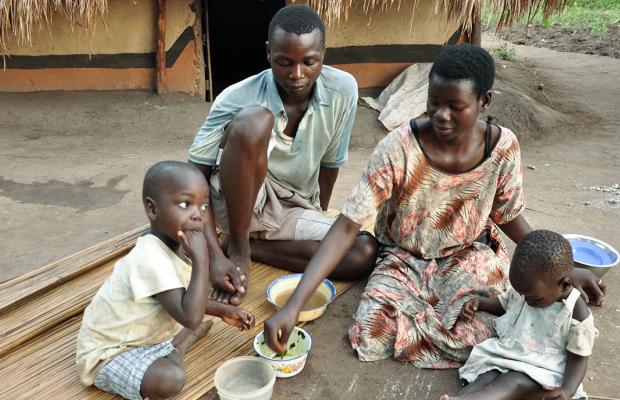
COMMENT: By Barbara Unmüßig
Poverty, malnutrition, and hunger must be recognised as a result of politics, not scarcity
The way people eat in the industrialised world is unhealthy, unjust, and unsustainable. Far too much of the meat consumed is produced under questionable ecological, ethical, and social conditions. And now that industrial model for meat production is being exported to the global south – especially India and China – where meat consumption is rising among the emerging middle classes of these countries.
Worldwide, 300 million tons of meat are produced each year, and the United Nations Food and Agriculture Organisation estimates that the annual amount will increase to 455 million tons by 2050 if demand continues to grow at the current rate. Such large amounts of meat can be produced only on an industrial scale, and at high social, political, and ecological costs.
Meat production is a tremendously inefficient use of agricultural land, because considerably more plant-based food is needed to feed livestock than we would need to feed ourselves directly through a plant-based diet. For example, producing one kilogram of chicken meat, pork, or beef requires 1.6, three, and eight kilograms of animal feed, respectively. This pits farmers and animal-feed producers against one another in a fierce competition over land.
Meanwhile, the production of soy – the world’s most important animal-feed grain – rose from 130 million tons in 1996 to 270 million tons in 2015, with 80% of output going to meat production, especially in China (70 million tons) and Europe (31 million tons). This expansion of soy agriculture, as a result of the growing demand for meat, is driving up land values. Consequently, in the global south, common land is being privatised, rainforests are being destroyed to make room for agricultural cultivation, and international agribusinesses are expropriating the land that one-third of the world’s people still rely on for their livelihoods.
Animal-feed production, and the intensive cultivation of agricultural land that it requires, is not only destroying ecosystems and reducing biodiversity; it is also fueling climate change. Worldwide, our industrial agriculture system produces an estimated 14% of the world’s greenhouse-gas emissions; including emissions indirectly linked to deforestation, and those associated with fertiliser production, increases that share to 24%. Moreover, the extensive use of fertilisers and pesticides – 99% of the world’s soy is genetically modified, and is routinely treated with pesticides – is also contaminating ground-water sources, destroying biodiversity, and eroding the soil.
We can no longer ignore the external costs of this system. If we are serious about addressing climate change and securing every human being’s right to proper nutrition and food security, we must challenge the presumption that an industrial agricultural model, let alone meat, is necessary to feed the world.
In fact, that presumption has little merit. The UN Environment Programme estimates that, by 2050, an area between the size of Brazil and India will have to be repurposed into cropland if current food-consumption trends continue. But if the 9.6 billion people expected to inhabit the planet by then were to have a plant-based diet, industrial meat production could be abandoned and all of them could be fed without the need for any additional agricultural land.
 The Independent Uganda: You get the Truth we Pay the Price
The Independent Uganda: You get the Truth we Pay the Price



